Accelerating digitalization
Digital transformation in the Vietnamese banking industry is taking place strongly, with the goal of bringing 50% of operations and 70% of customer transactions to digital platforms by 2025. However, the industry still faces three main challenges: cybersecurity and data security, shortage of digital human resources, and the need to perfect policy mechanisms to keep up with the pace of technological development and new business models.
By early 2025, the number of personal payment accounts in Vietnam had surpassed 200 million, reflecting a strong expansion in the scale of access to banking services. Transaction growth was reflected in an increase of 35% in Internet transactions, 33% in mobile transactions, and a breakthrough increase of 66% in QR code transactions compared to the same period in 2024.
The explosion of modern payment methods has contributed to accelerating the cashless process, promoting consumption, and improving financial service coverage, a core goal of the national financial inclusion strategy.
 |
| Innovation is not just a “digital game” but the real participation of commercial banks. Photo: Agribank |
Beyond expansion, digital transformation also helps improve operational efficiency. Many banks have reduced their cost-to-income ratio (CIR) to below 30%, an indicator that was previously considered the gold standard for only the leading financial institutions in the region.
Innovation is not just a “digital game” but the real participation of commercial banks. According to Decision 810/QD-NHNN on digital transformation of the banking industry by 2025, with a vision to 2030, Vietnamese banks have proactively “embedded” technology in almost every stage of operation. From AI, big data, machine learning, cloud computing to robotic automation (RPA), all are creating “smart machines” capable of predicting user behavior, early detection of fraud, money laundering, and making optimal credit decisions. And above all, hyper-personalization to meet the needs of “tailoring” each transaction, each user.
Connecting to the national population database and deploying electronic identification using chip-embedded citizen identification cards has also paved the way for digital financial services to become simpler, faster and safer than ever.
Speaking at the WFIS 2025 Conference with the theme "Financial Innovation" held on April 15, 2025, Mr. Le Anh Dung - Deputy Director of the Payment Department, State Bank of Vietnam - said that Vietnam is entering a new stage of development, with the aspiration to become a developed country by 2045. Digital transformation is the core driving force to achieve this aspiration. As the lifeblood of the economy, the banking industry plays a pioneering role in the digital transformation journey, not only meeting the increasing needs of customers but also contributing to the goal of digital transformation.
More than 90% of financial transactions are now conducted via digital channels, a number that is enough to show that consumer behavior is shifting strongly, requiring banks to not only digitize but also "humanize" the user experience.
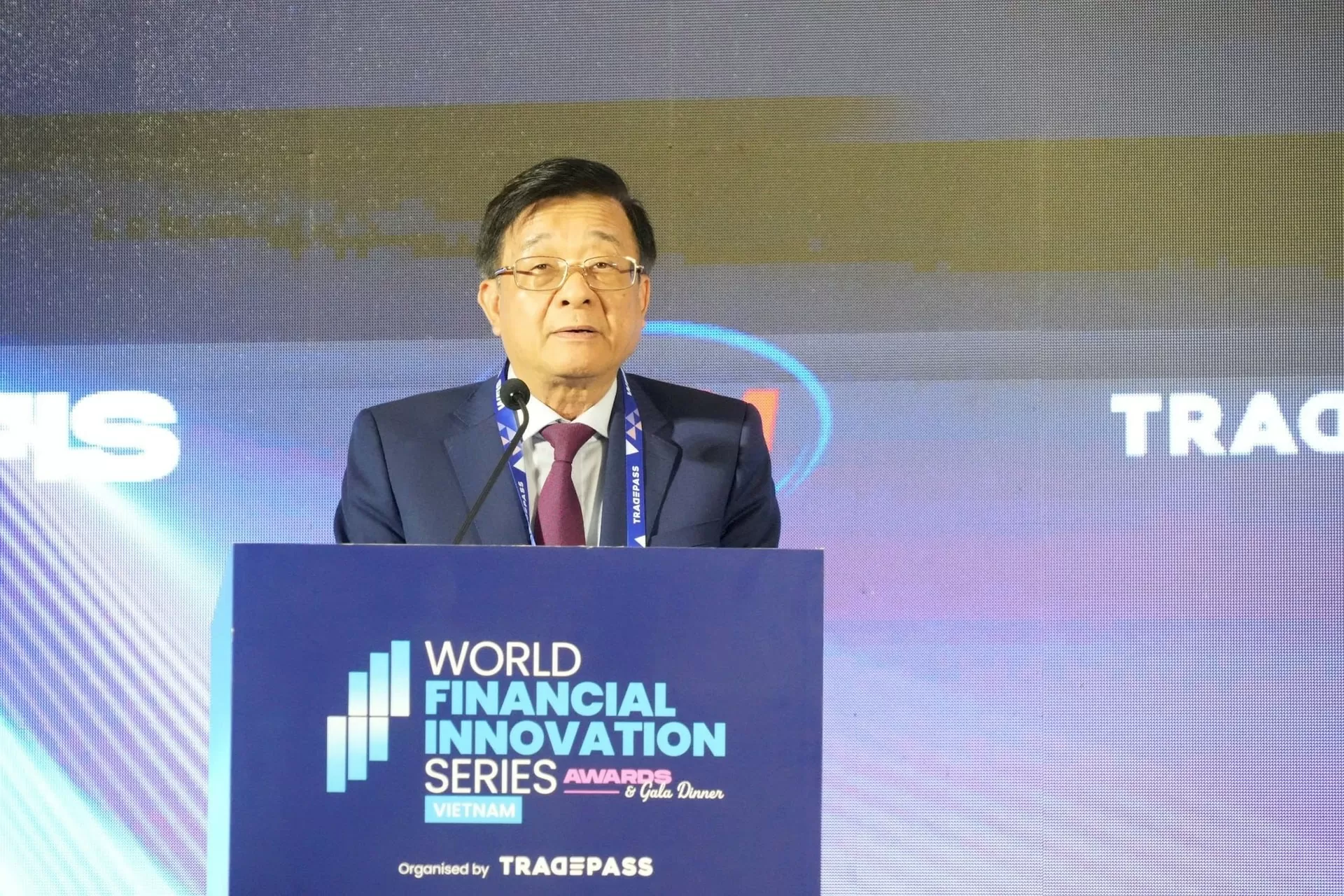 |
| Mr. Nguyen Quoc Hung - Vice Chairman and General Secretary of Vietnam Banks Association spoke at the conference. Photo: Duy Minh |
Providing more information about digital transformation in the banking system, Mr. Nguyen Quoc Hung - Vice Chairman and General Secretary of the Vietnam Banking Association - said that banks provide many practical products and services, enhancing the experience for people and businesses, contributing to the successful implementation of the Government's Project 06. Modern technologies such as biometric authentication and one-touch payment via QR code have been applied.
“In addition, banks are actively applying AI in two main areas: data management and analysis for business forecasting and management, and detection of fraud and money laundering risks for risk management and compliance,” Mr. Hung emphasized.
Identify challenges and resolve them
However, in the process of strong digital transformation of the banking industry, besides remarkable achievements, many challenges are also being revealed that need to be identified and handled promptly.
According to the representative of the Payment Department, network security and data security are the top challenges today. High-tech attacks such as deepfake or digital identity fraud are increasing in sophistication and scale, posing an urgent need to improve network defense capabilities and perfect secure authentication solutions.
Along with that, the problem of investing in modern technology infrastructure and developing digital human resources also poses no small pressure. While technology is constantly changing, the shortage of high-quality human resources in data, AI, cybersecurity, etc. is slowing down the digitalization process at some credit institutions. Developing digital infrastructure also requires large financial resources and synchronous coordination among related parties.
 |
| WFIS 2025 Conference with the theme “Financial Innovation”. Photo: Duy Minh |
On the other hand, the current system of mechanisms and policies still needs to be improved to keep up with the development speed of new models such as digital banks (neobanks), super apps or embedded finance, etc., which are emerging strongly in the digital age.
The digital transformation plan of the banking sector according to Decision 810 sets a target that by 2025, at least 50% of banking operations will be completely digitized, while 70% of customer transactions will be conducted on digital channels. Resolution 57 of the Politburo also emphasizes institutional breakthroughs, promoting the development of science, technology, innovation and national digital transformation in industries and fields.
To achieve these goals, according to Mr. Nguyen Quoc Hung, in the coming time, the digital transformation process in the finance - banking industry will continue to be accelerated and focus on key tasks such as: Continuing to build and perfect the legal framework to promote digital transformation in the banking industry, encouraging the application of digital technologies such as AI and blockchain, developing open banking, electronic transactions, security and safety on the Internet, as well as testing Fintech through sandboxes. In addition, it is necessary to implement data and technical standardization to connect and share data inside and outside the banking industry, along with the Central Bank's digital currency research.
At the same time, develop high-quality human resources through specialized training programs, cooperation with universities and technology enterprises; perfect a flexible and adaptive legal framework, encourage innovation while still ensuring system safety and consumer rights.
| The banking sector has also promoted the exploitation and development of online public services, effectively integrating them into the National Public Service Portal. More than 90% of work records are processed and stored online, with nearly 14.6 million accounts and 46.2 million records submitted via the National Public Service Portal, conducting nearly 26.8 million online payment transactions, totaling more than VND 12.9 trillion. |
Source: https://congthuong.vn/chuyen-doi-so-ngan-hang-doi-mat-3-thach-thuc-383092.html



![[Photo] National Assembly Chairman Tran Thanh Man meets with Ethiopian Prime Minister Abiy Ahmed Ali](https://vstatic.vietnam.vn/vietnam/resource/IMAGE/2025/4/16/c196dbc1755d46e4ae7b506c5c15be55)
![[Photo] Many practical activities of the 9th Vietnam-China border defense friendship exchange](https://vstatic.vietnam.vn/vietnam/resource/IMAGE/2025/4/16/3016ed3ef51049219574230056ddb741)
![[Photo] Opening of the 4th Summit of the Partnership for Green Growth and the Global Goals](https://vstatic.vietnam.vn/vietnam/resource/IMAGE/2025/4/16/488550ff07ce4cd9b68a2a9572a6e035)
![[Photo] President Luong Cuong receives Ethiopian Prime Minister Abiy Ahmed Ali](https://vstatic.vietnam.vn/vietnam/resource/IMAGE/2025/4/16/504685cac833417284c88a786739119c)





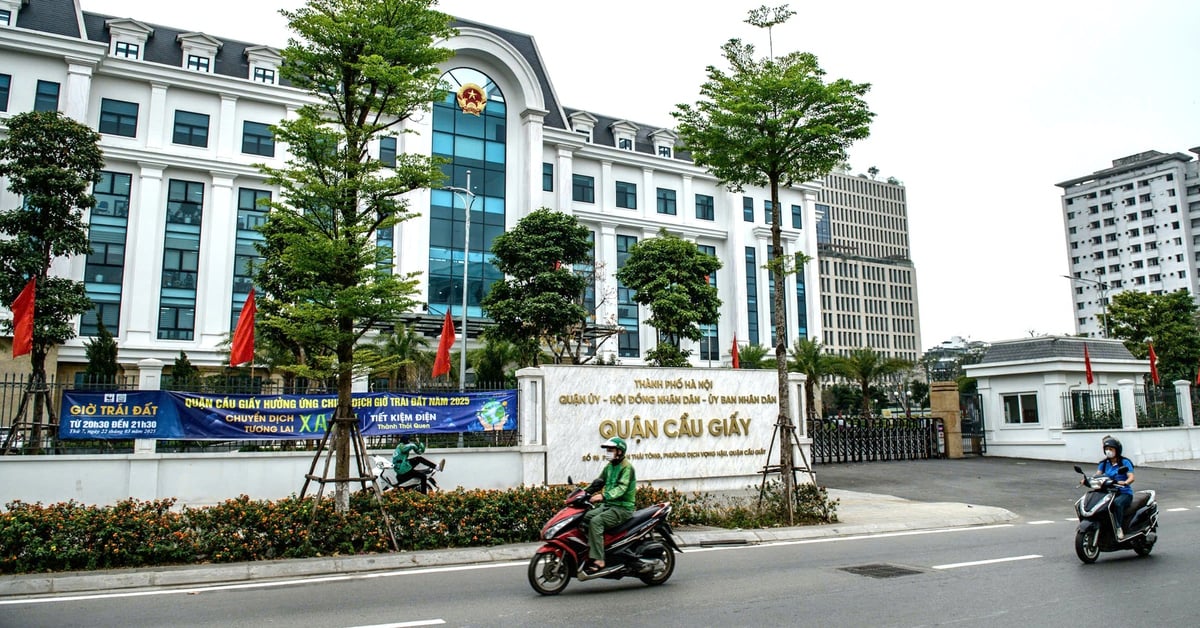










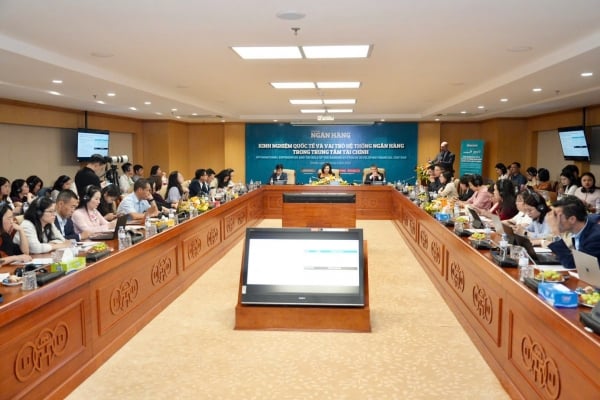
![[Photo] President Luong Cuong meets 100 typical examples of the Deeds of Kindness Program](https://vstatic.vietnam.vn/vietnam/resource/IMAGE/2025/4/16/ce8300edfa7e4afbb3d6da8f2172d580)































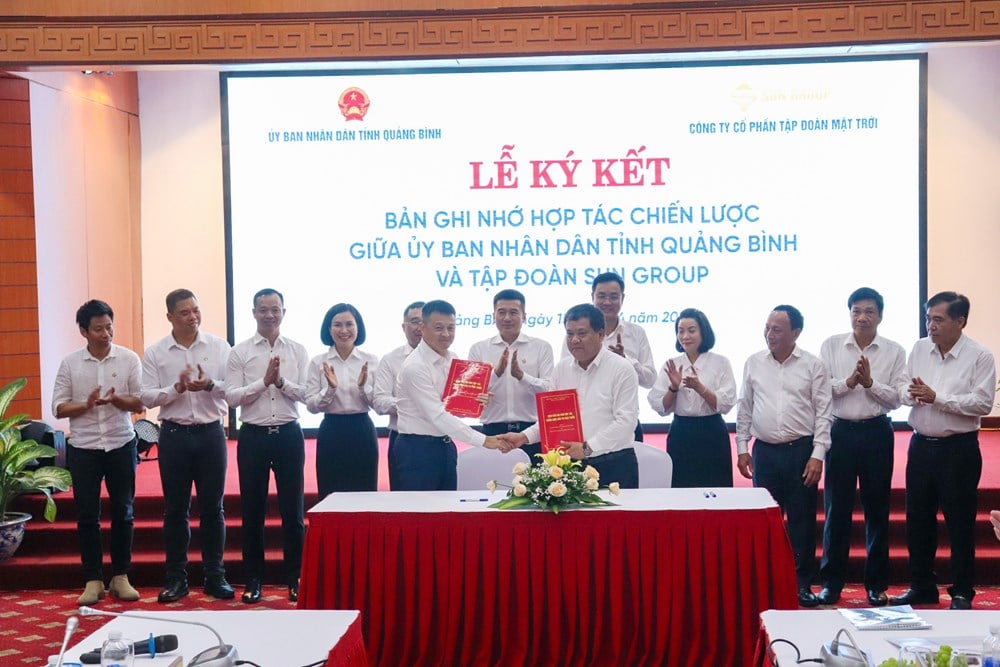










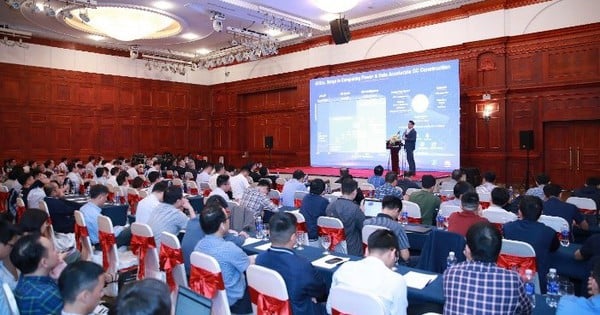















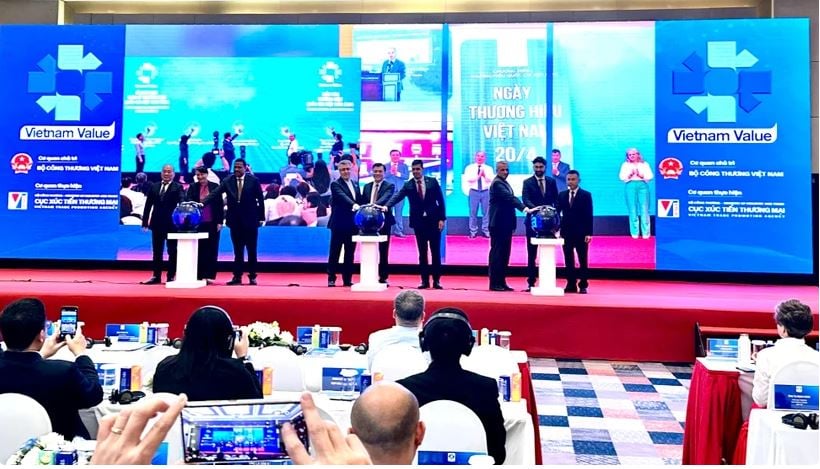








Comment (0)